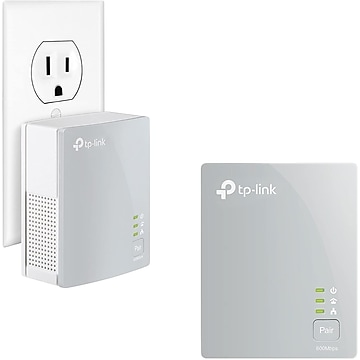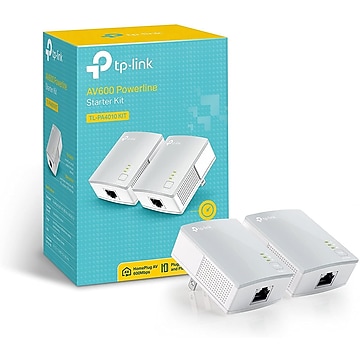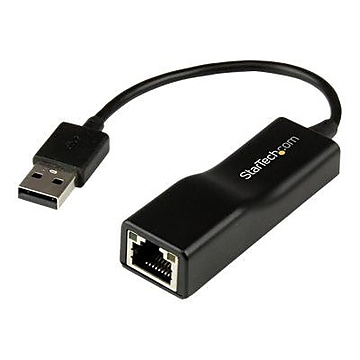Network Adapters
Best Match
Grid view
Pick up and Delivery
Brand
Gaming
Max. Data Transfer Rate (Mbps)
Network Adapter Interface
Network Adapter Type
Price


TP-Link TX1800U Archer Series AX & AC1201 Dual Band USB Wireless Adapter is New at Staples
33% off of TP-Link TX1800U Archer Series AX & AC1201 Dual Band USB Wireless Adapter
Item: 24609643
Model: TX1800U NANO
Price is $39.99, Regular price was $59.99, You save 33%
Free delivery by Thu, May 01
1-hr pickup
1
1
2
3
4
5
6
7
8
9
10
11
12
13
14
15
16
17
18
19
20
21
22
23
24
25
26
27
28
29
30
Over 30
Trending now
Price is $16.99, Regular price was $20.49, You save 17%
Unit of measure 100/Box Price per unit $0.17/File Folder
Delivery by Wed, Apr 23
1-hr pickup
1
1
2
3
4
5
6
7
8
9
10
11
12
13
14
15
16
17
18
19
20
21
22
23
24
25
26
27
28
29
30
Over 30


7% off of Staples QuickStrip EasyClose Self Seal Security Tinted #10 Business Envelopes, 4 1/8" x 9 1/2", White, 500/Box (ST50312-CC)
Price is $25.99, Regular price was $27.99, You save 7%
Unit of measure 500/Box Price per unit $0.05/Envelope
Delivery by Wed, Apr 23
1-hr pickup
1
1
2
3
4
5
6
7
8
9
10
11
12
13
14
15
16
17
18
19
20
21
22
23
24
25
26
27
28
29
30
Over 30
Network adapters add connectivity features to computers and bring expanded networking options to systems with limited capabilities. They come in a broad range of form factors that fit laptops, desktops, and servers and include products that support both wireless and wired networks. Eliminate communication bottlenecks at home or build unified connectivity solutions for the entire office with networking and Wi-Fi® products from Staples®.
A Network Adapter for Any Application
Household laptops, business desktops, and servers in data centers all have different networking requirements. USB Wi-Fi and ethernet adapters are tiny and offer plug-and-play convenience, making them ideal for home users or frequent travelers. PCIe® adapters fit desktop computers and many servers. Some provide standard wireless or ethernet connections. Others feature small form-factor pluggable (SFP/QSFP) technology that supports a variety of physical network types, including ethernet, direct-connect copper, and optical connectors. Multi-port ethernet adapters support virtual LAN (VLAN) connections that expand available bandwidth or provide server connectivity to multiple independent networks.
Network Adapters Offer Flexible Wi-Fi Capabilities
Home and business wireless networks use a variety of protocols to transmit data. Most wireless adapters support IEEE 802.11a/b/g/n/ac transmission standards, ensuring reliable performance when used with existing wireless routers and switches. Some models support both 2.4 and 5 GHz frequencies, which may make it easier to achieve a stable connection when sources of interference are present. Most adapters are compatible with WEP, WPA, and WPA2 encryption that help protect user data.
When Do Home Users Need Network Adapters?
There are several everyday household computer situations that an adapter can address. Most desktop computers have ethernet ports, but many lack wireless connectivity. A USB or PCIe Wi-Fi adapter makes it simple to connect a desktop system to a home network without running cables between rooms. Adding a USB-to-ethernet adapter to a laptop lets users take advantage of existing wired connections provided by a router. Wired links may offer faster and more reliable access than Wi-Fi. Also, they often have lower latency than wireless connections, making them attractive options for gamers. Select USB adapters have HDMI® or VGA video ports that further enhance laptop capabilities.
What Are the Differences Between USB and PCIe Network Adapters?
PCIe adapters are cards that have an edge-style connector that fits into a slot in a computer motherboard. While some laptops have PCIe slots, they are far more common in desktop systems and servers. Most PCIe cards are half-height, which reduces the space they use inside the computer case. Some models have external antennas that improve Wi-Fi signal reception. USB adapters plug into existing USB ports, which simplifies installation. Users can also swap USB adapters between computers without shutting down the systems and opening their cases.
What Operating Systems Are Compatible With Network Adapters?
Microsoft® Windows® and Apple® OS X® support a broad range of USB and PCIe adapters requiring no additional software or drivers. Many network card producers also offer drivers that provide Linux™ and UNIX® compatibility. Computer manufacturers offer network cards for servers that maximize the performance of their hardware. When it comes to Wi-Fi or physical connection compatibility, almost all network adapters conform to industry standards to ensure reliable interoperability between disparate networked devices.
A Network Adapter for Any Application
Household laptops, business desktops, and servers in data centers all have different networking requirements. USB Wi-Fi and ethernet adapters are tiny and offer plug-and-play convenience, making them ideal for home users or frequent travelers. PCIe® adapters fit desktop computers and many servers. Some provide standard wireless or ethernet connections. Others feature small form-factor pluggable (SFP/QSFP) technology that supports a variety of physical network types, including ethernet, direct-connect copper, and optical connectors. Multi-port ethernet adapters support virtual LAN (VLAN) connections that expand available bandwidth or provide server connectivity to multiple independent networks.
Network Adapters Offer Flexible Wi-Fi Capabilities
Home and business wireless networks use a variety of protocols to transmit data. Most wireless adapters support IEEE 802.11a/b/g/n/ac transmission standards, ensuring reliable performance when used with existing wireless routers and switches. Some models support both 2.4 and 5 GHz frequencies, which may make it easier to achieve a stable connection when sources of interference are present. Most adapters are compatible with WEP, WPA, and WPA2 encryption that help protect user data.
When Do Home Users Need Network Adapters?
There are several everyday household computer situations that an adapter can address. Most desktop computers have ethernet ports, but many lack wireless connectivity. A USB or PCIe Wi-Fi adapter makes it simple to connect a desktop system to a home network without running cables between rooms. Adding a USB-to-ethernet adapter to a laptop lets users take advantage of existing wired connections provided by a router. Wired links may offer faster and more reliable access than Wi-Fi. Also, they often have lower latency than wireless connections, making them attractive options for gamers. Select USB adapters have HDMI® or VGA video ports that further enhance laptop capabilities.
What Are the Differences Between USB and PCIe Network Adapters?
PCIe adapters are cards that have an edge-style connector that fits into a slot in a computer motherboard. While some laptops have PCIe slots, they are far more common in desktop systems and servers. Most PCIe cards are half-height, which reduces the space they use inside the computer case. Some models have external antennas that improve Wi-Fi signal reception. USB adapters plug into existing USB ports, which simplifies installation. Users can also swap USB adapters between computers without shutting down the systems and opening their cases.
What Operating Systems Are Compatible With Network Adapters?
Microsoft® Windows® and Apple® OS X® support a broad range of USB and PCIe adapters requiring no additional software or drivers. Many network card producers also offer drivers that provide Linux™ and UNIX® compatibility. Computer manufacturers offer network cards for servers that maximize the performance of their hardware. When it comes to Wi-Fi or physical connection compatibility, almost all network adapters conform to industry standards to ensure reliable interoperability between disparate networked devices.















































































































